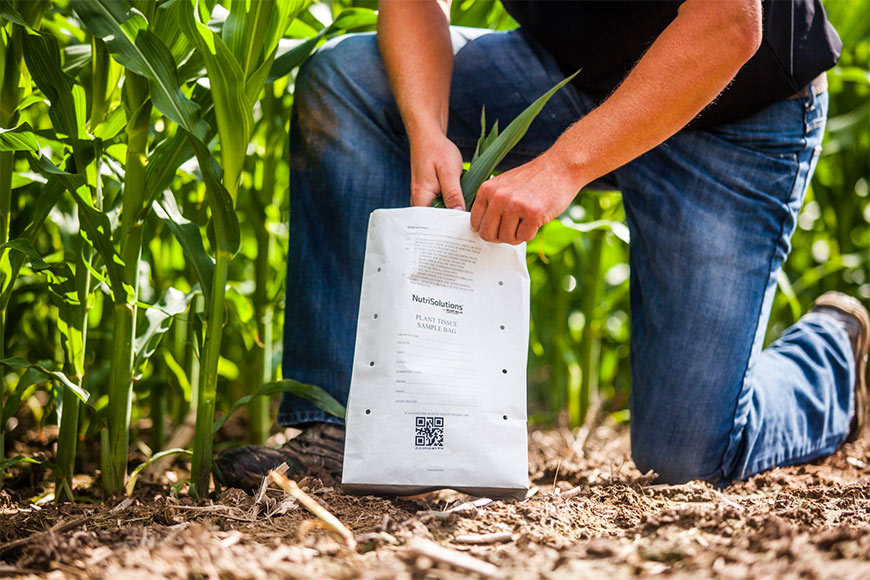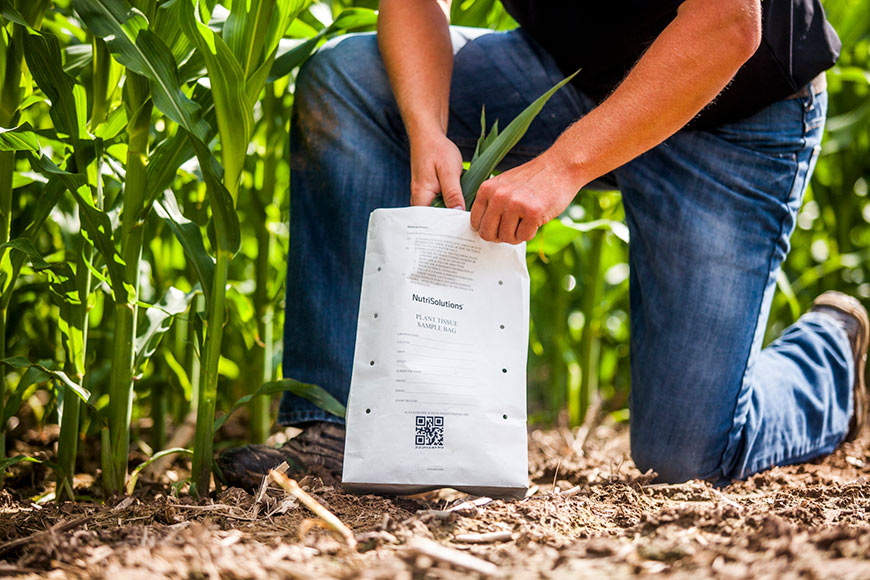Tissue Sampling Trends Show Environment Limited Crop Nutrition in 2019

Data shows that environmental stresses may have limited crop nutrition this season, based on over 45,000 tissue samples analyzed by WinField United. The insights gained from those 45,000 samples can help improve the efficiency and precision of nutrient applications all season long.
Nutrient trends and insights
Here are some nationwide trends revealed by tissue analysis conducted by WinField United in 2019.
Corn lacked sufficient macro- and micronutrients.
Corn yields may have been limited by nutritional deficiencies based on over 21,000 tissue samples submitted from across the country. The most common deficiency was zinc; over 80% of corn sampled was short on the nutrient that aids in chlorophyll synthesis and other metabolic functions. Boron, manganese, nitrogen and sulfur were also deficient or responsive in a majority of the samples analyzed.
Soybeans were potassium deficient.
Nearly 75% of soybeans sampled lacked sufficient potassium levels to meet plant health needs.Potassium is important for nodule formation and nitrogen fixation in soybeans. A majority of soybeans were also low in copper and sulfur based on analysis of over 5,200 soybean tissue samples taken nationally.
Wheat needed micronutrients.
Similar to last year, chloride deficiency was widespread across wheat crops in 2019. Over 87% of wheat sampled lacked adequate concentrations of the nutrient. Limited availability of chloride can disrupt plant metabolism, including water regulation in cells and plant enzyme activation. Magnesium, copper, boron and zinc were also limited in more than 75% of the wheat samples analyzed.
Cotton was deficient in potassium.
Nearly 95% of cotton samples were deficient or responsive in potassium for 2019, up from nearly 90% in 2018. Potassium is an essential nutrient that is important for fiber development in cotton. Calcium, boron, copper and zinc were also lacking in the majority of the 1,500 cotton samples submitted. Alfalfa was short on calcium. Like we saw last year, over 90% of the more than 300 alfalfa samples analyzed had low levels of calcium in 2019. Calcium aids in nitrogen uptake and nutrient absorption, and it contributes to enzyme activity in plants. The majority of alfalfa samples were also short on magnesium, phosphorus, potassium and copper.
In-season stress likely contributed to nutrient deficiencies
Environmental conditions and in-season stress made nutrient availability a struggle for crops this season. As harvest began, some cornfields may have experienced the effects of nutrient deficiency in the form of uneven ear height, poorly pollinated corn ears and weak stalks. In-season tissue sampling gave farmers a real-time snapshot of crop fertility, allowing for adjustments that helped protect yield potential.
The WinField United tissue sampling database includes more than 600,000 data points that help identify nutrient trends based on geography, soil type and environmental conditions. Analysis from samples taken in 2019 can help identify how nutrient deficiencies and unbalanced nutrient ratios may have impacted yield potential. Those insights can inform fertilization strategies for 2020. Supplementing soil nutrients will be incredibly important to overcome some of the nutritional challenges crops faced in 2019.
Now is a good time to speak with your locally owned and operated WinField United retailer to review sampling data for your area and prepare crop nutrition plans for next year.
All photos are either the property of WinField United or used with permission.
© 2019 WinField United. Important: Before use always read and follow label instructions. Crop performance is dependent on several factors many of which are beyond the control of WinField United, including without limitation, soil type, pest pressures, agronomic practices, and weather conditions. Growers are encouraged to consider data from multiple locations, over multiple years, and be mindful of how such agronomic conditions could impact results. WinField® is a trademark of WinField United.





